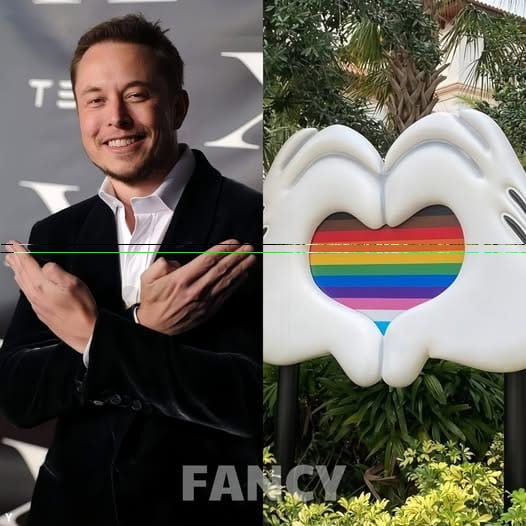
By banning Disney’s Pride content from his social media network, X (previously Twitter), Elon Musk has made a bold statement that has had a profound impact on the entertainment industry and the larger cultural environment. Musk, a personality frequently linked to controversy and power in the technological sector, seems to have drawn a distinct line in the continuing debate between traditional values and progressive ideals in media and entertainment. His recent claims that “woke” content is “not for kids” have sparked heated debates and criticism, especially from progressive groups who see this as a clear insult to LGBTQ+ representation in the media.
One of the biggest media companies in the world, Disney, started the uproar when it released their Pride Month programming on X and other platforms. This work aims to celebrate and encourage underrepresented communities, especially LGBTQ+ youth, with its rainbow-themed imagery, pride affirmations, and messages supporting LGBTQ+ rights. As evidenced by the recent addition of LGBTQ+ characters in well-known productions like Lightyear and Strange World, Disney has long been in the forefront of promoting diversity and inclusion in its media offerings, ranging from television shows to motion pictures.
Musk has made it clear that he opposes such stuff, though, as his business X has developed into a center for political and cultural discussion. Musk expressed his opinion in a number of posts that children’s entertainment shouldn’t feature “woke” philosophy, which frequently includes social justice concerns like feminism, racial equality, and LGBTQ+ rights. “Woke is not for kids,” he added, drawing a clear boundary between what he views as appropriate children’s media and what he views as overly politicized material.
Musk has taken decisive steps to support his position in addition to outlining it in a number of posts. According to reports, he personally censored or deleted certain Pride-related information from X, thereby decreasing or silencing it on the site. Some have criticized this move as an attempt to stifle free speech, while others have applauded it as a protest against what they see as the overabundance of progressive ideas in family-friendly entertainment.
Many have accused Musk of using X as a political tool to force his personal views on the public, and his actions there have become a point of disagreement. While his supporters claim that Musk is only protecting kids from what they view as “inappropriate” content, other detractors claim that he is escalating the division surrounding LGBTQ+ rights.
Disney has upheld its commitment to LGBTQ+ inclusion, but Musk’s actions highlight the growing divide between businesses and some societal groups over the scope of diversity and inclusion efforts. Disney’s move to support LGBTQ+ characters and Pride Month programming has drawn praise and controversy, with some conservatives charging the business of advancing a “woke” agenda. As companies like Disney must balance the urge to align with progressive principles while dealing with blowback from more conservative audiences, Musk’s activities on X only help to exacerbate this ongoing cultural war.
The question of whether this scandal will have long-term effects on Disney’s business is still open. Disney has repeatedly reiterated its commitment to diversity, especially as a leader in worldwide entertainment, despite previous criticism from conservative groups. However, the ramifications of this scenario might be huge given Musk’s significant following and influence on X.
Musk’s remarks reflect a broader backlash among certain conservatives and moderates who believe that progressive ideas—especially the media’s support of racial justice and LGBTQ+ rights—are being promoted too much. The word “woke,” which is often used disparagingly, has become a catch-all term for programs and cultural movements that question established conventions and advance social justice.
This problem has taken center stage in Musk’s fight against what he sees as the spread of a “woke” ideology in the media and other areas of society. His claims that Pride is unsuitable for young audiences are in line with an increasing number of certain groups that believe that children shouldn’t be exposed to complex societal topics like gender identity and sexuality at an early age. The growing movement calling for more LGBTQ+ inclusion in children’s media, which aims to normalize varied identities and experiences from a young age, stands in stark contrast to this viewpoint.
Musk’s activities highlight even more how powerful social media sites like X are in influencing public opinion and bringing about societal shifts. Although his remarks have sparked debate, they also draw attention to the continuous conflict in the digital age between the need for regulation and the right to free speech. Users, politicians, celebrities, and corporations vie for control of the public narrative on platforms like X, which are increasingly seen as arenas for ideological and cultural disputes.
Similar Subjects






